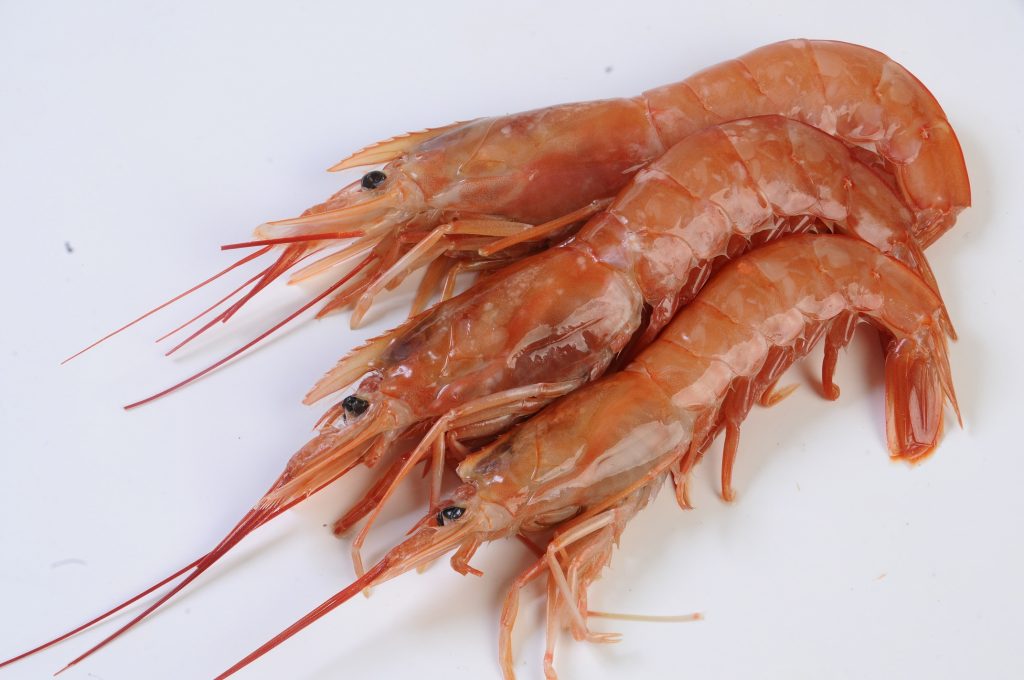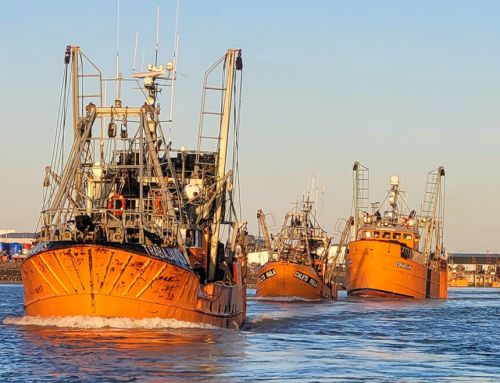After a ten-year process, one of the most important fisheries in Argentina obtained the coveted MSC blue label.
The journey took a decade. And along the way, an infinite number of events. All of them are now anecdotal. The coastal red shrimp fishery in Chubut᷾’s province waters achieved the certification against the Marine Stewardship Council (MSC) sustainable fisheries standard.
Thursday March 20th 2025 became a date that will be marked in the history of Chubut´s fisheries, as it is the first fishery managed by an Argentinean provincial state to obtain this certification.
And, of course, it will also go down in CeDePesca’s history: it managed to crown one of its improvement projects (FIPs) for the first time with an MSC certification, the most rigorous and prestigious sustainability certification in the world.
On that date, the certifying company OIA announced that the objection period for commenting on the fishery’s Draft Final Report had ended without any new comments, so the Public Certification Report and the corresponding certificate were submitted to MSC and to the client group and are now available on their website.
Since that first step in September 2015 when the Fishery Improvement Project was launched, CeDePesca together with the Client Group (Achernar, Cabo Vírgenes, Consermar, Food Partners Patagonia, San Isidro Group, Veraz Group, Conarpesa Group, Iberconsa) have been involved in an extensive journey that went through, among other vicissitudes, the COVID-19 pandemic and changes of governments at national and provincial level.
CeDePesca executive director, Ernesto Godelman, highlighted that the news of the certification was received with satisfaction and relief by the companies “because in these ten years there were many moments of doubt and uncertainty due to the time that this process demanded”.
“For CeDePesca, achieving this goal generates enormous satisfaction because during these ten years, despite the difficulties, trust and support was maintained, there was patience and all this has now paid off,” he added.
Meanwhile, CeDePesca’s deputy executive director, Gabriela McLean, did not hide her joy at the announcement: “It is a great satisfaction for CeDePesca to have accompanied the improvement process of Argentinean coastal red shrimp fishery and to have witnessed its certification”.
“CeDePesca’s mission is to achieve sustainable fisheries in Latin American region, and in that way I am proud of the work carried out by our team and our alliance with the Client Group partners, who have maintained for a decade their steadfast commitment to this long term project,” she added.
Finally, McLean reflected: “At CeDePesca, we hope that this achievement will encourage and inspire other fisheries in Argentina and the region that wish to pursue sustainability“.
Reflections on Fisheries Improvement Projects (FIPs)
By: Ernesto Godelman
For many years, since 2007, several global organisations have argued that a Fisheries Improvement Project (FIP) should not last more than five years to show that it is not “greenwashing”. CeDePesca has always disagreed with this idea, explaining that what really matters is to show through evidence that serious work is being done to achieve the goal. The Chubut red shrimp fishery certification is the best evidence that we were right. Five years is an arbitrary deadline and is not based on the complex reality that needs to be addressed in order to achieve compliance with the requirements of sustainable fisheries in our countries.
What is important, what is valuable, is to show that serious work is being done, even if it takes 5, 10 or 15 years.
Please, friends from CASS, from Fishery Progress, from MSC, from different organisations, get the five years out of your minds and out of the texts on FIPs!



